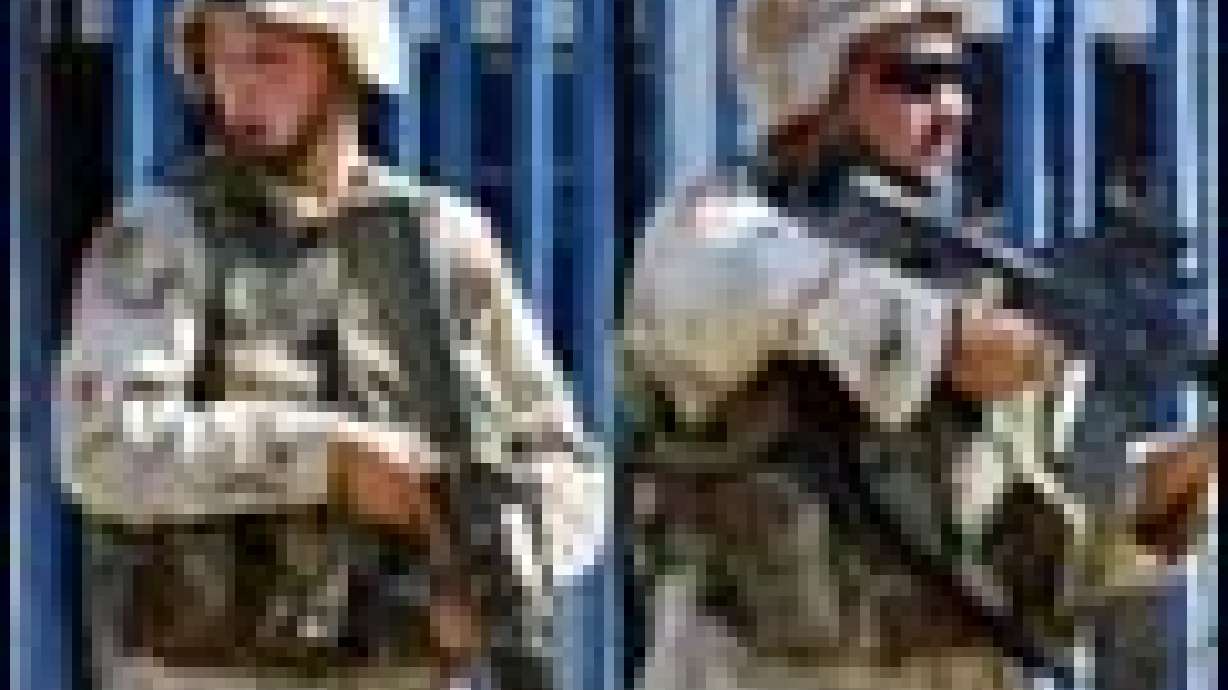Estimated read time: 4-5 minutes
This archived news story is available only for your personal, non-commercial use. Information in the story may be outdated or superseded by additional information. Reading or replaying the story in its archived form does not constitute a republication of the story.
WASHINGTON (AP) -- Faced with rising numbers of attacks, sabotage and foreign terrorists, U.S. officials on Sunday rejected sending more American troops to stabilize Iraq but said they would welcome additional help from other countries.
Better intelligence and cooperation from the Iraqi people are key to reversing the tide of violence, said L. Paul Bremer, the top U.S. civilian official in Iraq.
Gen. Richard Myers, chairman of the Joint Chiefs of Staff, said the United States would welcome a bigger international presence, but deferred to diplomats on the thorny question of whether some military control should be ceded to the United Nations.
On CBS' "Face the Nation," Myers said that Gen. John Abizaid, the U.S. military commander in Iraq, hasn't asked for more troops, though the Pentagon would consider any such request.
"Whatever Gen. Abizaid or our folks in Iraq or Afghanistan need, we're going to provide them those resources," Myers said.
Questions about U.S. troop strength in Iraq have heightened since the truck bombing of U.N. headquarters in Baghdad last week that killed the United Nations' top envoy along with at least 23 others.
There were fresh signs of unrest Sunday, after a bomb exploded outside the house of one of Iraq's more important Shiite clerics, killing three guards and injuring 10 others.
Also Sunday, the International Committee of the Red Cross said it was scaling back its work force in Baghdad after receiving warnings that the organization might be a terror target.
Last week, President Bush said more foreign "al-Qaida-type fighters" have moved into Iraq. U.S. officials believe militants from Saudi Arabia, Syria and Iran are infiltrating the country to attack Western interests.
Myers, on NBC's "Meet the Press," said the United States has not created a haven for terrorists, though he maintained that Iraq was a big part of the broader war on terrorism.
"And what the terrorists want to do is they want to have their way," Myers said. "And that's just not going to be. It's more a question of wills right now."
About 150,000 U.S. troops are in Iraq, along with 20,000 international troops who are part of the U.S.-led coalition. Roughly 50,000 Iraqis are working with the United States on security matters.
Sen. Joseph Biden, D-Del., cited some outside estimates that another 40,000 to 60,000 soldiers would be needed.
"In order to get those, we need a U.N. resolution authorizing them. We don't have to have these folks under blue helmets. They can be under U.S. command," said Biden, senior Democrat on the Senate Foreign Relations Committee.
People with specialized skills, such as linguists or workers who could help rebuild oil refineries and other infrastructure, are especially needed, said Sen. John McCain, R-Ariz., a member of the Senate Armed Services Committee.
Concerns over how big a role other countries should play in policing Iraq have also risen because of increased criticism about overall U.S. military strength. Besides Iraq, the United States has long-term commitments in -- among other places -- Korea, Kosovo and Afghanistan, and recently deployed a small peacekeeping force to Liberia.
"We are stretched thin, but we have more troops to send," Myers said.
Defense Secretary Donald H. Rumsfeld, in an interview with Time magazine, said, "The analysis thus far says that we have sufficient forces to do the assigned missions," although the Pentagon is working on proposals to make the military more efficient.
Bremer said on CNN's "Late Edition" that the United States would welcome a greater international presence in Iraq. As an example, he cited a Polish military division that was scheduled next month to replace a U.S. Marine division.
However, Bremer said on "Fox News Sunday" it was "hard for me to see how the U.N. itself can play a further military role because the U.N., in my experience, normally insists on commanding its own troops."
At least some U.N. control is a condition that France, India and other nations have insisted on before sending troops. Bremer said all military forces should remain under coalition command.
"However, the U.N. clearly has a vital role to play in the reconstruction of Iraq," he said.
On ABC's "This Week," Bremer cited three U.S. goals: improving intelligence; encouraging Iraqis to take a more active role; and reconfiguring forces "to make them more mobile, so that we can move around easily."
Despite the continuing violence, Bremer insisted that the U.S.-led coalition's efforts to fight terrorists and rebuild the war-torn country would not be slowed.
"We can't duck this fight," Bremer said. "It's a fight, as we saw on Tuesday, against the international community and against the world."
(Copyright 2003 by The Associated Press. All Rights Reserved.)








